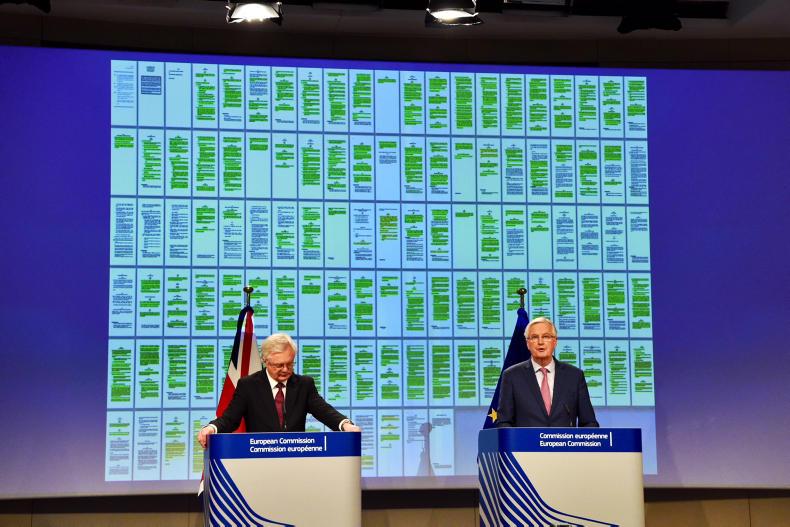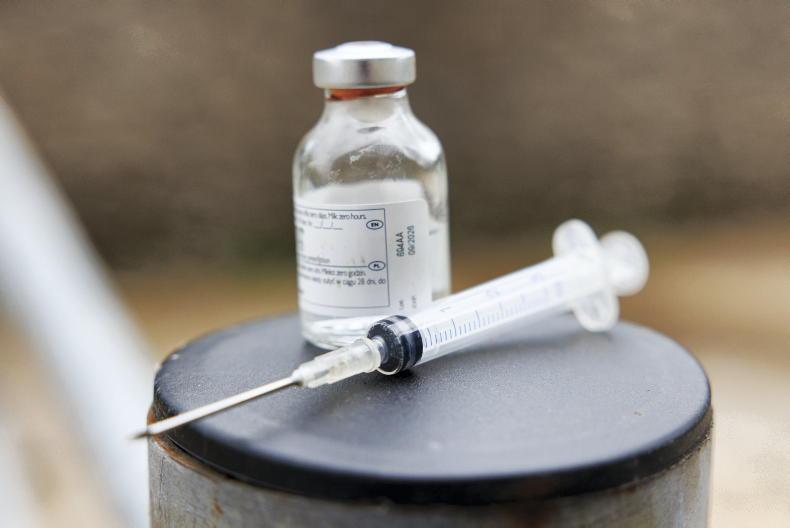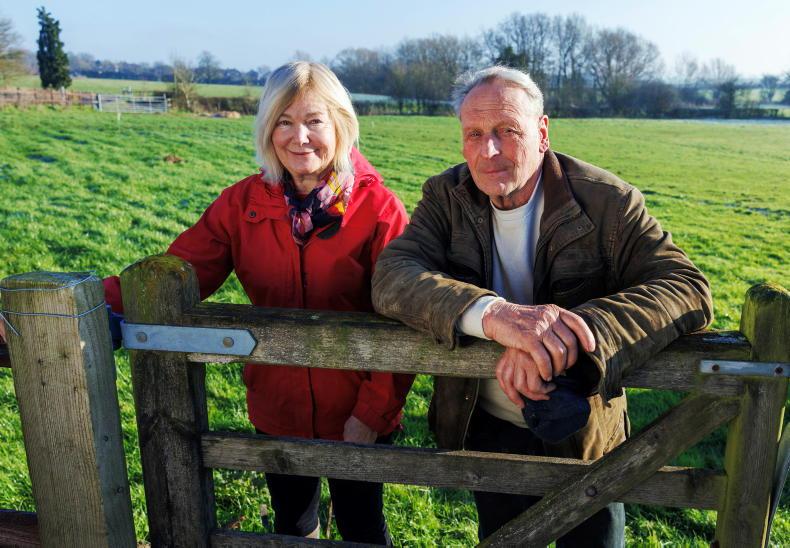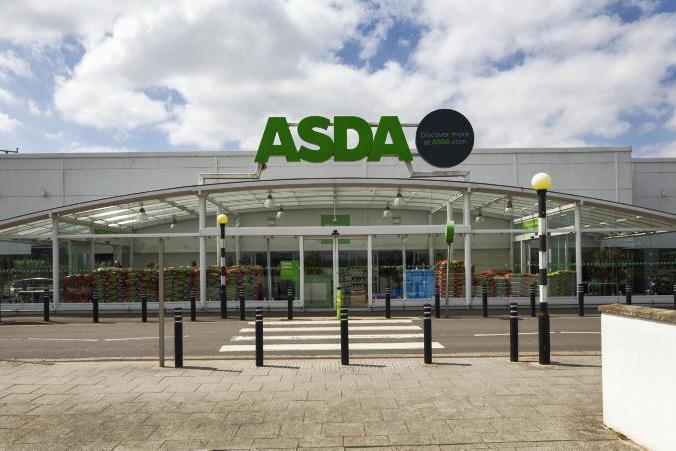With just over a year to go until the UK formally leaves the EU, a transition deal was signed off by the negotiators in Brussels this week. Provided this is signed off by heads of state in the EU Council, the UK will officially leave the EU at the end of March 2019. In practical terms nothing will change at least until 31 December 2020, when the transition deal concludes as agreed this week.
For Irish farmers a transition deal will provide some certainty. Calves and lambs born this spring will have gone through their growing and processing cycle with the same level of market access as enjoyed at present. However it is important to recognise that this is just a breathing space to allow negotiation of a future trading relationship take place on which the future of Irish farm exports rests.
Leaving terms mostly agreed
Within the deal concluded on the UK leaving, many of the big-ticket items have been resolved as the huge swathes of green reflects in the screen behind the negotiators as they presented their agreement in Brussels on Monday. However the issue of the Irish border remains outstanding, though the Irish Government remain satisfied with the backstop solution of continued Northern Ireland alignment with the EU in the event that no other solution is found.
Of course from an exporting perspective anywhere on the island of Ireland, it is access to the British market that is the most important.
A border in the Irish sea would not just be politically unattractive to those with a pro-union view in the north, it would be a disaster for exports from the Republic of Ireland as well as Britain, not Northern Ireland, is the main destination for these. Similarly for farmers in Northern Ireland, while exports south account for up to one third of milk production and 400,000 lambs, the reality is that three quarters of Northern Ireland sales are to Britain and it is therefore the key market that cannot be disrupted.
Future trade
Of course shaping the future trading relationship will be the most difficult negotiation and that is only about to start assuming the heads of state give the clearance at this week’s meeting. The challenge is to reconcile what seems irreconcilable – returning complete sovereignty to the UK while preserving as close to the status quo as possible on trade.
The EU are on record as saying that the UK will not have a better trade arrangement than what was in place with EU membership. The UK are ambitious to have the freedom to manage movement of EU citizens, who make up around half of UK immigration as well as undertake their own trade deals. This was the big win by the UK and concession by the EU in this week’s deal. The UK secured the right to negotiate and sign deals during the transition period though they cannot take effect until after the transition period ends on 31 December 2020.
Potential for UK trade deals
It will be interesting to note what opportunities the UK identify during the transition period. Already it appears that there are conflicts of ambition between the UK and USA over standards, particularly around agricultural production and processing. Use of hormones in production and lactic acid in processing are a feature of the US industry but Michael Gove, the UK minister with responsibility for agriculture has said these won’t apply in the UK post-Brexit.
Of course the EU have been actively pursuing trade deals for several decades and while it is more difficult to conclude a deal that will be accepted by 28 members, it is still unclear what precise opportunities may be open to the UK outside the EU than were inside.
Ideal outcome for farmers
The best case scenario that could emerge for farmers is that the UK would use the transition phase to explore opportunities but find that there was nothing more exciting than what was available aligned to the EU. After March 2019 it won’t be a case of the UK being a member anymore but so long as they are aligned to the EU customs and tariffs, and no divergence, then they could be in a position to avail of market access without being a member.
Of course with Parliament having sovereignty to make decisions for the UK, this could end at any time but Parliament could well choose to remain aligned for a considerable time.









SHARING OPTIONS